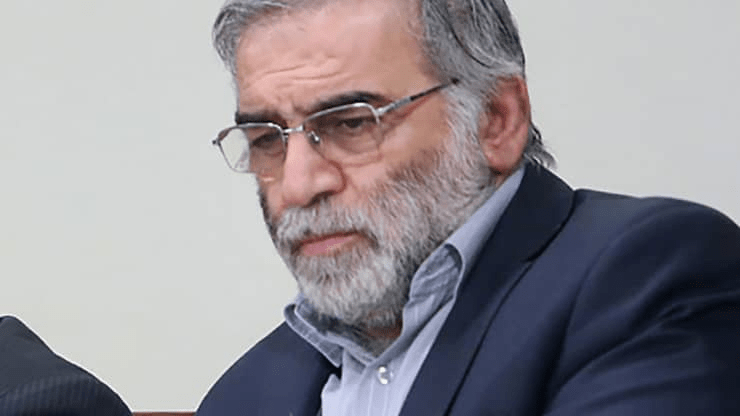A top Iranian nuclear scientist has been assassinated, Iran’s government confirmed Friday. Mohsen Fakhrizadeh, dubbed the “father of the Iranian bomb,” died from his injuries after armed assassins fired upon his car, according to reports by Iranian media that have not been independently confirmed by NBC News.

State media shared photographs of a black Nissan sedan with multiple bullet holes through the windshield and bloodshed on the road next to the car door. No group has immediately claimed responsibility for Friday’s attack.
Fakhrizadeh’s death comes days before the 10-year anniversary of the killing of Iranian nuclear scientist Majid Shahriari, which Iran also blamed on Israel.
Little is known about Fakhrizadeh, a high-ranking Islamic Revolutionary Guard Corps officer, long viewed as Iran’s top nuclear scientist overseeing the regime’s secret weapons programs.
In 2018, Israeli Prime Minister Benjamin Netanyahu accused Iran of continuing to develop nuclear weapons and said Fakhrizadeh was working within Iran’s Defense Ministry on “special projects”. “Remember that name, Fakhrizadeh,” Netanyahu said at the time.
Fakhrizadeh’s death is expected to escalate tensions between Iran and the United States, which have soared under the Trump administration following Washington’s exit from the landmark Iran nuclear agreement.
The 2015 Joint Comprehensive Plan of Action, or JCPOA accord, brokered by the Obama administration, lifted sanctions on Iran that had crippled its economy and cut its oil exports roughly in half. In exchange for sanctions relief, Iran accepted limits on its nuclear program until the terms expire in 2025.
Trump has previously said that he wants to reach a broader deal with Iran that puts stricter limits on its nuclear and ballistic missile work and suppresses the regime’s role in regional proxy wars. Tehran has refused to negotiate while U.S. sanctions remain in place.
The relationship between the U.S. and Iran took another turn for the worse during the summer of 2019 following a string of attacks in the Persian Gulf. In June, U.S. officials said an Iranian surface-to-air missile shot down an American military surveillance drone over the Strait of Hormuz. Iran said the aircraft was over its territory.
That strike came a week after the U.S. blamed Iran for attacks on two oil tankers in the Persian Gulf region and after four tankers were attacked in May.
The U.S. in June slapped new sanctions on Iranian military leaders blamed for shooting down the drone. The measures also aimed to block financial resources for Iran’s Supreme Leader Ayatollah Ali Khamenei.
Tensions soared again in September of last year when the U.S. blamed Iran for strikes in Saudi Arabia on the world’s largest crude-processing plant and oil field.
That attack forced the kingdom to cut its production operations in half and triggered the largest spike in crude prices in decades and renewed concerns of a new war in the Middle East. Iran maintains that it was not behind the attacks.
Earlier this year, the U.S. carried out an airstrike that killed Qasem Soleimani, Iran’s top military commander.
Top Iranian nuclear scientist assassinated, CNBC, Nov 27